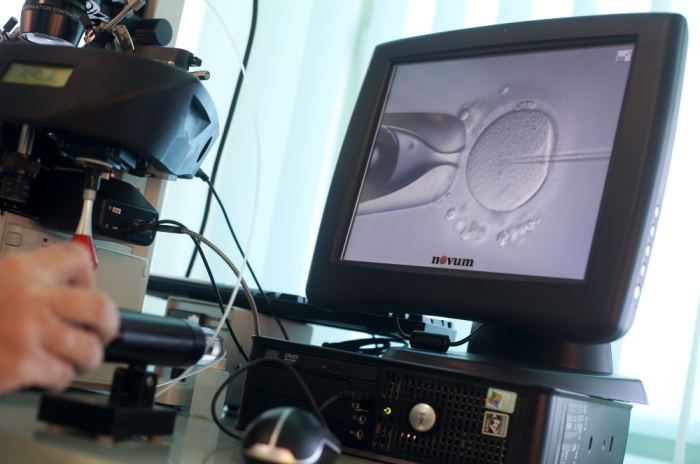New AI technology determines embryos suitable for IVF, draws concern about eugenics

Artificial intelligence is playing a role in selecting which embryos show the most promise during IVF, with the technology ruling out which ones are unsuitable for a successful pregnancy.
The AI software, EMA, evaluates embryos for IVF procedures and scores them based on features such as genetic abnormalities, gender or the odds of successful implantation. AIVF, the Israel-based company behind the algorithm, is promoting the technology as a way to improve the embryo selection process during IVF.
David Prentice, the vice president of scientific affairs at the pro-life research organization Charlotte Lozier Institute, told The Christian Post in a Monday statement that this is “eugenic technology.”
“The AI program is a tool used to pick and choose which embryos are higher quality; this means some human beings are looked at as lower quality, perhaps even discarded as lives not worth living,” Prentice stated. “Previous studies have shown that even embryos judged to be ‘low grade,’ when given the chance for life, have been birthed as normal, healthy babies. Society should not divide human beings into quality control silos but rather should value and nurture every human life.”
AIVF did not immediately respond to The Christian Post’s request for comment.
IVF involves combining female eggs and male sperm to create an embryo, which is then implanted in a woman’s uterus. Pro-life organizations have raised ethical concerns about IVF, arguing that it results in the deaths of unborn children when excess embryos are discarded or fail to survive being frozen or thawed.
Embryologist Dr. Daniella Gilboa, co-founder and CEO of AIVF, asserted that IVF is one of the most important medical developments in the last 50 years but argued that it’s “not good enough,” citing the low success rates across all age groups.
“Imagine if you’re an embryologist, looking at multiple embryos in a hectic lab environment, and you have to decide which one has the best potential to become a baby,” Gilboa told Fox News Digital Wednesday.
“You might have eight, 10 or 12 embryos that all look the same — and you have to make that crucial decision, sometimes by yourself. It’s basically you and the embryos under the microscope,” she continued.
Gilboa highlighted how many women freeze their eggs so they can delay having a child and focus on advancing their careers, stating that this creates a demand for IVF.
"In the U.S., only 20% of the need is served, which means 80% of those women are giving up on the dream of having a child,” she said.
The AIVF CEO emphasized how EMA can find embryonic features undetectable to the “human eye” and can work faster than doctors, although Gilboa claimed that the AI is not intended to fully replace human beings. Human doctors will still make the decision when it comes to embryo selection, according to the AIVF CEO.
AIVF’s technology is already in use throughout Europe, Asia and South America, with Gilboa promising that it’s coming to the United States “very soon.”
“EMA’s AI embryo evaluation is based on a set of deep-learning-based algorithms that assess embryo quality and developmental competence,” an AIVF brochure about the technology reads. “The robust AI model is trained on biological markers of the embryo known to influence embryo viability and quality and can identify morphological features that the human eye is not able to see.”
According to the data cited in the brochure, EMA is 30 times faster and 38% more accurate than a human embryologist. The technology also reduced patient time to pregnancy by 21.5% on average, according to the informational material.
AIVF developed the AI through “rigorous scientific research, tailored exactly to the needs of the embryology lab,” according to the brochure.
“Our proprietary suite of solutions offers a unique set of tools for digitization and automation of the IVF clinic, helping patients on a smoother, quicker and more accessible path to parenthood,” the document continues.
Samantha Kamman is a reporter for The Christian Post. She can be reached at: [email protected]. Follow her on Twitter: @Samantha_Kamman




























